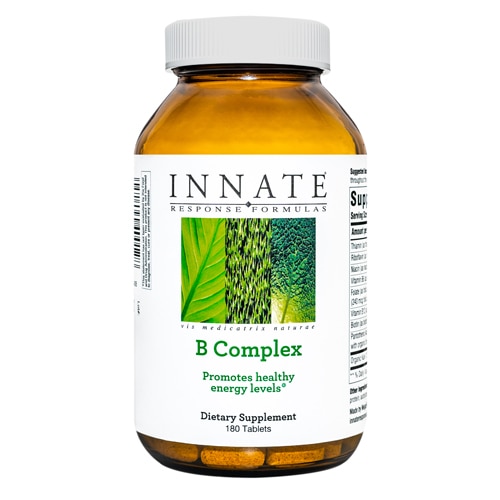Thiamin, riboflavin, niacin, biotin, B6, folate and B12 are often referred to as the B complex. But understanding these vitamins doesn’t have to be complex at all. These water-soluble vitamins are chemically very different from one another, though they are found in foods together. As a team, B vitamins work to support a healthy metabolism, nervous and immune systems and red blood cell formation.* That’s reason enough to ensure you’re getting them in your diet every day. But are you?
For plant-based eaters, it’s hard to get B vitamins on a vegan diet. They’re not alone. Many struggle to get sufficient B vitamins, especially folate and B12. However, these nutrients are essential for many several body functions. So, here’s the million-dollar question:
How to get more B vitamins in your diet?
1. Eat whole foods.
If that sounds incredibly simple, well, it is. When you eat white rice, white bread or white pasta, you’re eating a food that has been stripped of most B vitamin content. So if you love rice and beans or eat sushi twice a week, opt for brown rice. If you’re eating bread, choose whole grain bread. A good rule of thumb is to focus on whole foods that are as close to their original state as possible.
2. B(e) specific.
Regularly include foods in your diet that naturally provide B vitamins. Believe it or not, beef liver is a good source of B vitamins. If that’s not on your favorites list, try spinach and other dark green leafy vegetables. Other sources include lentils, black beans, salmon, sardines, cheese and whole eggs. These are foods that are easy to incorporate into your everyday, if not every meal.
3. Supplement when needed.
Despite your best efforts, you still may not be eating enough of the right foods to get all essential B vitamins. Recent data from the Center for Disease Control (CDC) demonstrated that 18 million Americans are deficient in Vitamin B12 and 30 million are deficient in Vitamin B6. In light of these prevalent deficiencies, it’s a wise choice to supplement with a whole-food-based B complex. Look for a formula that contains a balanced ratio of B vitamins, similar to what is found in nature.
*These statements have not been evaluated by the Food and Drug Administration. These products are not intended to diagnose, treat, cure or prevent any disease.




